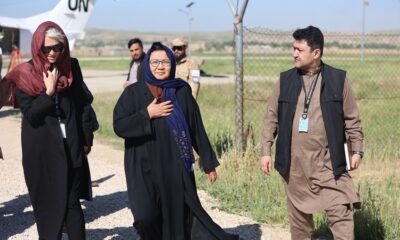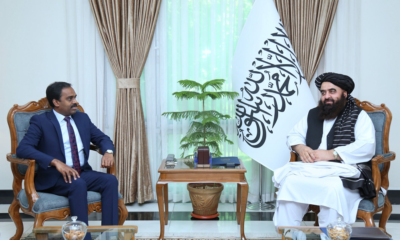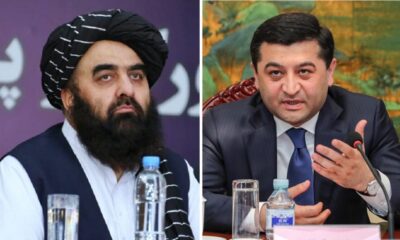Latest News
UN moves to unlock stuck climate financing for Afghanistan
If successful, this would be the first time new international climate finance would flow into the arid, mountainous nation in three years.

United Nations agencies are trying to unlock key climate financing for Afghanistan, one of the world’s most vulnerable countries to climate change which has not received approval for any fresh such funds since the 2021 Islamic Emirate takeover, Reuters reported citing two U.N. officials.
Plagued by drought and deadly floods, Afghanistan has been unable to access U.N. climate funds due to political and procedural issues since the IEA came to power.
But with the population growing more desperate as climate woes stack up, U.N. agencies are hoping to unseal project financing for the fragile country to boost its resilience.
If successful, this would be the first time new international climate finance would flow into the arid, mountainous nation in three years.
“There are no climate sceptics in Afghanistan,” said Dick Trenchard, U.N. Food and Agriculture Organization (FAO) country director for Afghanistan. “You see the impact of climate change and its environmental effects everywhere you go.”
Two U.N. agencies are currently drawing together proposals they hope to submit next year to shore up nearly $19 million in financing from the U.N’s Global Environment Facility (GEF), part of the financial mechanism of the 2015 U.N. Paris Agreement on climate change.
These include the FAO, which hopes to get support for a project costing $10 million that would improve rangeland, forest and watershed management across up to four provinces in Afghanistan, while avoiding giving money directly to IEA authorities.
The U.N. Development Programme, meanwhile, hopes to secure $8.9 million to improve the resilience of rural communities where livelihoods are threatened by increasingly erratic weather patterns, the agency told Reuters. If that goes ahead, it plans to seek another $20 million project.
“We’re in conversations with the GEF, the Green Climate Fund, the Adaptation Fund – all these major climate financing bodies – to reopen the pipeline and get resources into the country, again, bypassing the de facto authorities,” said Stephen Rodriques, UNDP resident representative for Afghanistan.
National governments often work alongside accredited agencies to implement projects that have received U.N. climate funds. But because the IEA government is not recognised by U.N. member states, U.N. agencies would both make the request and serve as the on-the-ground partner to carry out the project.
FLOODS, DROUGHT
“If one of the countries most impacted by climate change in the world cannot have access to (international climate funds), it means something isn’t working,” Rodriques said, adding that any funds should come alongside continued dialogue on human and women’s rights.
Flash floods have killed hundreds in Afghanistan this year, and the heavily agriculture-dependent country suffered through one of the worst droughts in decades that ended last year. Many subsistence farmers, who make up much of the population, face deepening food insecurity in one of the world’s poorest countries.
The FAO and UNDP will need to receive initial approvals by the GEF secretariat before they can submit their full proposals for a final decision from the GEF Council, which comprises representatives from 32 member states.
If the agencies get that first green light, Trenchard said, they would aim to submit their proposals in early 2025.
We “are awaiting guidance as to whether it would be possible to proceed,” Trenchard said.
No foreign capital has formally recognised the IEA government, and many of its members are subject to sanctions. The United States has frozen billions in central bank funds since the IEA took over and imposed restrictions on education of girls and women.
Many human rights activists have condemned the IEA’s policies and some have questioned whether interaction with the IEA and funnelling funds into the country could undermine foreign governments’ calls for a reversal on women’s rights restrictions.
The IEA says it respects women’s rights in accordance with Sharia law.
Countries mired in conflict and its aftermath say they have struggled to access private investment, as they are seen as too risky. That means U.N. funds are even more critical to their populations, many of whom have been displaced by war and weather.
IEA members are attending the ongoing annual U.N. climate negotiations COP29 in Baku, Azerbaijan as observers for the first time.
The IEA’s presence could build trust between Afghanistan and international donors, said Abdulhadi Achakzai, founder of the Afghanistan climate nonprofit Environmental Protection Trainings and Development Organization, on the sidelines of COP29.
“It will be a safer world for the future to include Afghanistan officially in the agenda,” he said. “We see this is an opportunity. There are funds for Afghanistan, we just need to secure it.”
Latest News
UNAMA chief visits northern Afghanistan, meets local officials including women
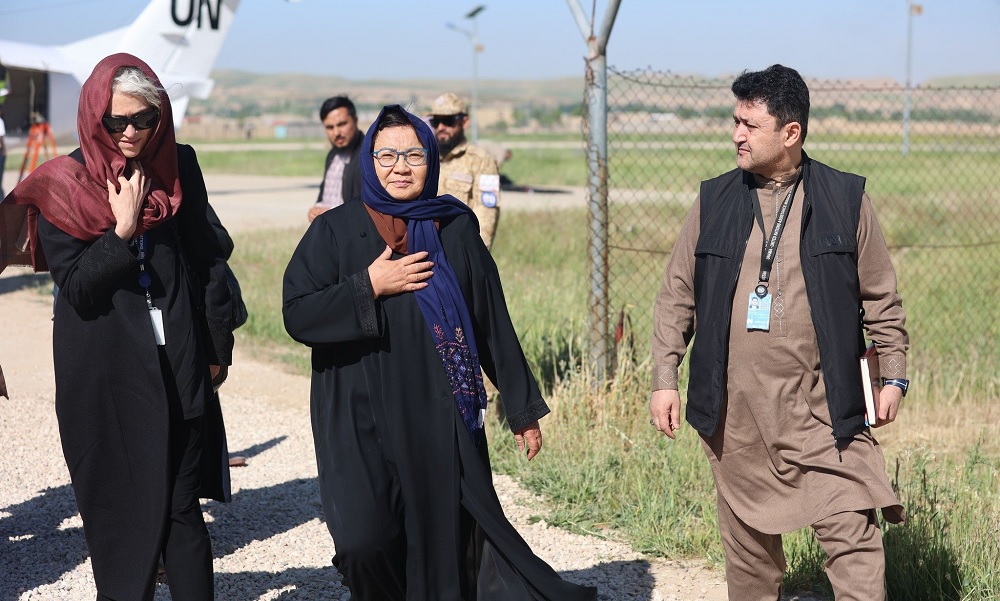
Roza Otunbayeva, Head of the United Nations Assistance Mission in Afghanistan (UNAMA), recently visited the city of Maimana in northern Afghanistan, where she met with local officials, entrepreneurs, and UN staff.
UNAMA wrote on its Facebook page on Sunday, that during the visit, entrepreneurs — including women — met with Otunbayeva, and requested support to facilitate access to new markets, particularly in Uzbekistan.
UNAMA further stated that among these entrepreneurs was a group of women who, with the support of the United Nations Development Programme (UNDP), had established a tailoring workshop.
They expressed their appreciation for the support received and spoke about the significant growth and development of their business.
UNAMA added that the organization remains committed to promoting economic opportunities and empowering Afghan communities, especially women.
Latest News
Senior Indian official meets with FM Muttaqi in Kabul
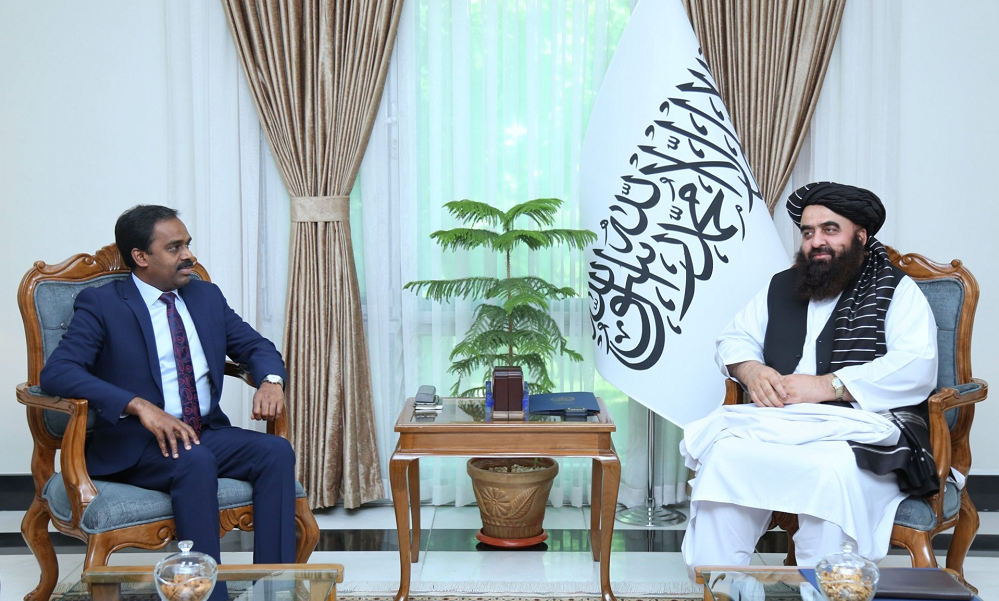
Anand Prakash, head of the Afghanistan, Iran and Pakistan Division of the Indian Ministry of External Affairs, met with Acting Foreign Minister Amir Khan Muttaqi in Kabul for talks on various issues.
According to a press release issued Sunday by the Afghan Foreign Ministry, bilateral political relations, trade, transit and recent political developments in the region were discussed in the meeting.
Muttaqi stressed the need for the expansion of diplomatic and economic relations between the two countries and explained that Afghanistan currently offers favorable opportunities for investment. He said Indian investors should take advantage of these opportunities.
He also said that facilities should be created for the movement of people between Afghanistan and India and the issuance of visas for medical purposes, students and businessmen should return to normal.
Meanwhile, Prakash said that relations with Afghanistan are important for India and he hopes that these relations will expand further in various fields.
He stressed that India will continue its cooperation with Afghanistan and wants to invest in some infrastructure projects and restart projects that were paused for some time.
The two sides also emphasized the expansion of relations, the exchange of delegations, visa facilitation and bilateral cooperation.
Latest News
Afghanistan ‘fully ready’ for Trans-Afghan railway project: Muttaqi
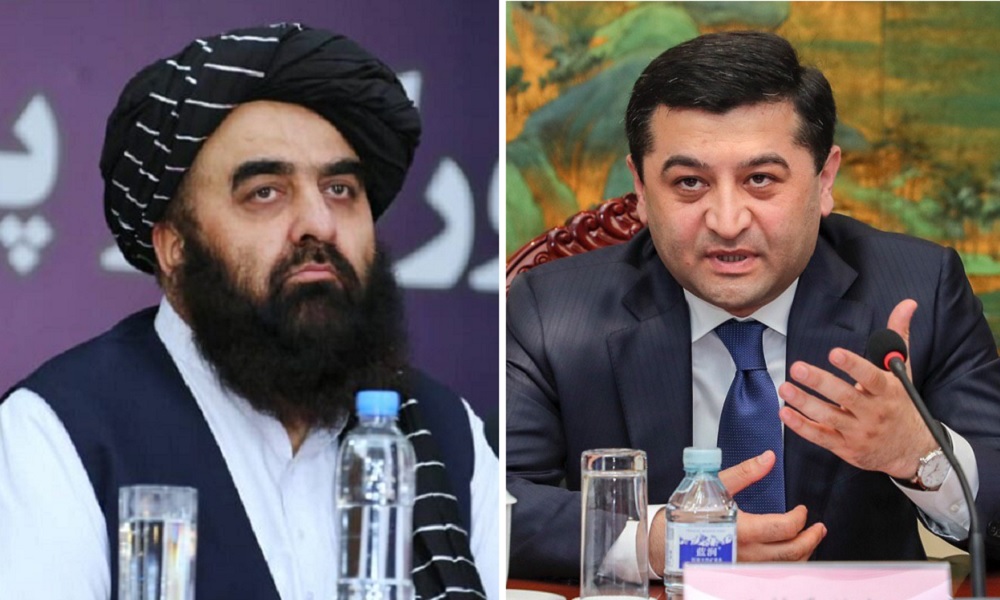
Acting Foreign Minister Amir Khan Muttaqi has said in a phone call with his Uzbek counterpart that Afghanistan is fully prepared for the implementation of the Trans-Afghan railway project.
During the call, the two sides discussed strengthening bilateral and multilateral relations, as well as expanding political, economic and transit cooperation, the Ministry of Foreign Affairs in Kabul said in a statement on Sunday.
Uzbek Foreign Minister Bakhtiyor Saidov noted that Afghanistan’s exports to Uzbekistan have tripled in the first four months of 2025 compared to last year. He vowed to create more facilities in the field of trade and transit between the two countries, especially in issuing visas to Afghan citizens.
Meanwhile, Amir Khan Muttaqi said that Afghanistan is fully prepared for the implementation of major economic projects such as the Trans-Afghan railway project and for the strengthening of political, trade and transit cooperation with Uzbekistan. He said that the existing opportunities should be utilized for the mutual benefit of the two countries.
The two sides also discussed the holding of a trilateral meeting between Afghanistan, Uzbekistan and Pakistan at the level of foreign ministers and agreed to coordinate through diplomatic channels to determine the exact date and place of the meeting.
The three neighboring countries signed an agreement in February 2021 to construct a 573-kilometer railway line through Afghanistan, connecting landlocked Central Asia to Pakistan seaports, with an estimated cost of $4.8 billion to enhance regional economic connectivity.
Pakistan’s Deputy Prime Minister and Foreign Minister Ishaq Dar held a telephone conversation with Uzbek foreign minister last Thursday to discuss the Trans-Afghan railway project.
Dar expressed hope that the three countries would soon sign a framework agreement on this important regional project.
-

 Sport5 days ago
Sport5 days agoSri Lanka A defeats Afghanistan A by 4 wickets in Abu Dhabi
-

 Business5 days ago
Business5 days agoAfghanistan’s growth prospects remain uncertain amid global uncertainty: World Bank report
-
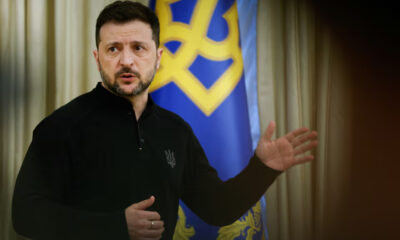
 World5 days ago
World5 days agoUkraine ready to hold talks with Russia once ceasefire in place, Zelenskiy says
-

 Latest News4 days ago
Latest News4 days agoAWCC activates new site in Nangarhar’s Kuz Kunar district
-

 Latest News4 days ago
Latest News4 days agoTarig Ali Bakheet and Japan’s Deputy Foreign Minister discuss Afghanistan’s situation
-

 Climate Change5 days ago
Climate Change5 days agoPowerful earthquake of 6.2 magnitude shakes Istanbul
-

 Business4 days ago
Business4 days agoPakistan’s deputy PM discusses Trans-Afghan Railway Line project with Uzbek FM
-

 Latest News5 days ago
Latest News5 days agoSpecial meeting will be held to launch Afghanistan–Russia joint commission, says Kabulov


